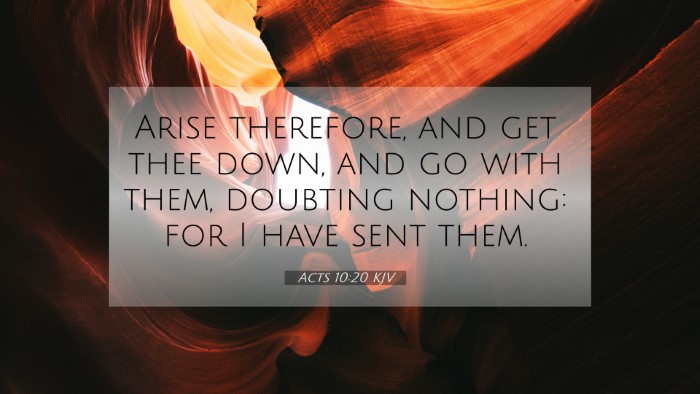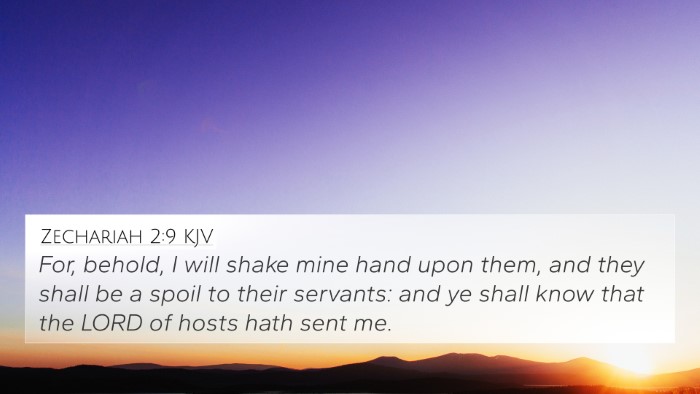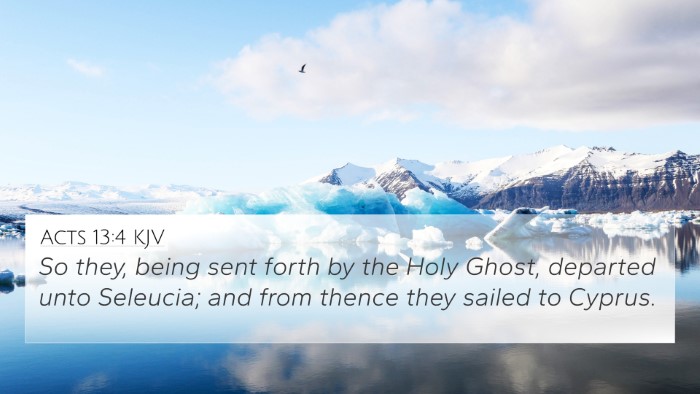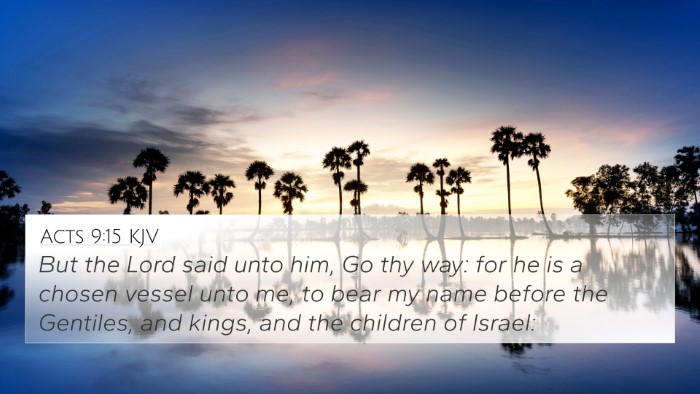Understanding Acts 10:20
Acts 10:20 states: "But rise, and go down, and go with them, doubting nothing: for I have sent them."
This verse is part of a profound narrative that illustrates the breaking down of cultural and religious barriers within the early Church. Through insights from public domain commentaries, we can delve deeper into its meaning and implications.
Verse Analysis
The directive given to Peter to rise and accompany the men sent by Cornelius reflects divine orchestration. In doing so, Peter is called to overcome his prejudices and fulfill a mission that expands the boundaries of the early Christian faith.
Commentary Insights
-
Matthew Henry’s Commentary: Henry emphasizes the importance of obedience to divine commands. He notes that Peter's hesitation is common among believers when faced with the unfamiliar. God’s command to accompany the Gentiles signifies a pivotal shift in the understanding of the Gospel's reach.
-
Albert Barnes: Barnes notes the specific encouragement to not doubt, highlighting the theme of faith in God’s guidance. He reflects on how Peter’s journey with the Gentiles was not just a physical journey, but also a spiritual awakening that set a precedent for future missions.
-
Adam Clarke: Clarke interprets Peter's directive as indicative of God's intentions to cleanse and call all people, regardless of their backgrounds. He stresses that this scene underscores the idea of inclusivity in salvation.
Thematic Connections
Acts 10:20 serves as a turning point in the narrative of the early Church, particularly in how it dealt with the relationship between Jews and Gentiles. The command to Peter not only reveals God's purpose but also establishes a framework for understanding the connections between various Biblical texts.
Cross-References
This verse can be richly understood when linked to several other scriptures:
- Matthew 28:19 - The Great Commission, which emphasizes making disciples of all nations.
- Mark 7:19 - Jesus states that what comes out of a man defiles him, indicating a theological departure from dietary laws.
- Romans 10:12-13 - Asserts that there is no distinction between Jew and Gentile in relation to salvation.
- Galatians 3:28 - Reveals that in Christ there is neither Jew nor Gentile, affirming the unity of believers.
- Ephesians 2:14-16 - Paul elucidates the reconciliation of Jews and Gentiles through Christ.
- Acts 11:1-18 - Peter recounts his experience, confirming the acceptance of Gentiles by God.
- 1 Peter 2:9 - Portrays believers as a chosen generation, a royal priesthood that transcends ethnic boundaries.
Applying the Understanding
In studying Acts 10:20 alongside its cross-references, readers can grasp the transformative power of the Gospel. This scripture illustrates the early Church's struggle with cultural barriers and God's broader vision for humanity. By employing tools for Bible cross-referencing such as a Bible concordance or Bible cross-reference guide, individuals can deepen their understanding of this pivotal moment.
Conclusion
Acts 10:20 is not merely an isolated directive to Peter; it encapsulates a broader theological shift that continues to resonate within Christian thought today. Engaging in comparative Bible verse analysis and thematic Bible verse connections will not only enrich personal study but also enhance communal understanding of God’s will for His people.










